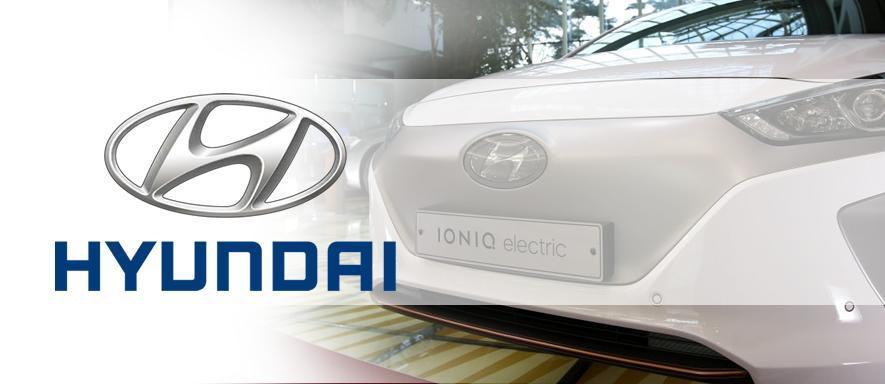South Korean car manufacturers Hyundai Motor Co have outlined plans to start developing its first dedicated architecture for electric vehicles in a clear attempt to challenge businesses like Tesla in what is a growing market sector for automakers. With that trend likely to continue Hyundai is expected to introduce a number of new products to the electric vehicle industry.
Hyundai Motor and its affiliate KIA Motors Corp announced its plan to roll out small electric sport utility vehicles (SUVs) based on an existing underpinning next year – according to Lee Ki-sang who heads Hyundai-KIA’s green cars operations. However, whilst the company stressed that the platform will not be completed soon – it did declare that once introduced the company will possess a product capable of penetrating and challenging the market-leaders in the electric-car segment.
The separate platform represents a major push into the battery electric-car segment for Hyundai which has long trumpeted rival fuel-cell vehicles, reflecting strong investor pressure to compete more vigorously in a market that has been stimulated by US based Tesla’s longer-range models.
Industry analysts have suggested that tough fuel-economy and emission regulations in the US, Europe and China are forcing automakers to embark on producing fuel-efficient cars even though low oil prices have significantly undercut demand. In addition to this, the terms of the Paris Climate deal have also added social responsibility factors on manufacturers to produce energy efficient vehicles – hence why the growth of electric vehicles is predicted to continue to trend in an upwards fashion. Norway, yesterday announced its plans to have every vehicle in the country electrically powered – as part of its ongoing initiative to phase out fossil fuel-powered vehicles by 2025.
Head of Hyundai KIA’s green cars operations said that the electric-car platform being proposed by the organization would allow the automaker the opportunity to install a battery pack in vehicle floors to accommodate more battery capacity and maximize cabin space. Lee said: “The electric-vehicle platform will require high up-front investments, but we are doing this to prepare for the future.”
Some analysts have declared that Hyundai had no other alternative other than joining the likes of Tesla, General Motors Co and Daimler AG unit Mercedes-Benz in developing and building separate electric vehicle platforms in order to be relevant in the segment.
In a further announcement, Hyundai disclosed that they will launch an electric SUV – which will be subsequently followed by KIA motors next year – this approach indicative of the current market demands for SUVs. Hyundai Motor’s IONIQ hybrid sedan fell short of its sales expectations last year – but this was counteracted by KIA’s NIRO hybrid SUV exceeded its forecast in 2016. KIA Motors revealed that it is currently working on its first fuel cell vehicle which follows Hyundai Motor’s lead in this particular segment.
However, some industry executives remain cautious in relation to the emergence and growth of the electric car market with many pointing to the planned phase-out of government subsidies in China and other market as reasons to be pessimistic.
Analysts have also suggested that electric vehicles will account for about 10 percent of total global vehicle sales by 2025, from some 1 percent now, with China leading the way. Fuel-cell cars, by comparison, were unlikely to take off until 2025, but had long-term potential. As part of efforts to meet Chinese electric car quotas, Hyundai and Kia planned to introduce electric versions of its China-exclusive sedans and SUVs, while readying electrified models under local brands made with Chinese joint venture partners, he said.







